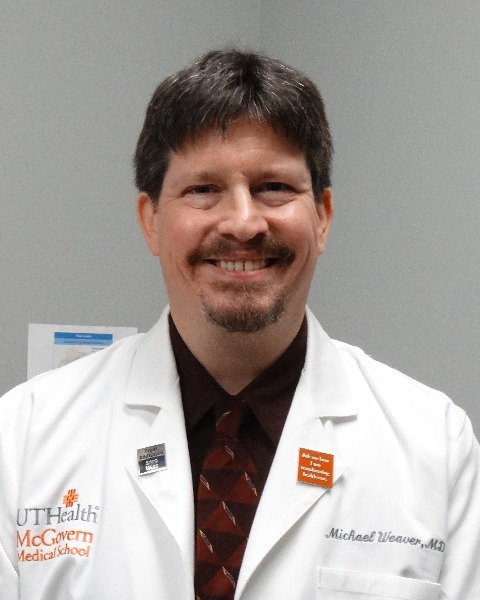
Tobacco Cessation: Evidence-based Guidelines for Practitioners
-
Register
- Non-Member - $39
- Regular Member - $29
- Retired - $29
- Early Career Physician - $29
- Resident - $19
- Student - $19
- Associate - $19
- ASAM Staff - Free!
- International Member - $29
- Emeritus Member - $29
- Provisional Member - $29
- Fellow Member - $29
- Honorary Member - $29
- CRT Member - $29

Tobacco Cessation: Evidence-based Guidelines for Practitioners
Recorded: Thursday, March 31, 2022 - Sunday, April 3, 2022
On-Demand Session
Overview
This 1-hour, on-demand session from the ASAM 53rd Annual Conference describes the evidence supporting integration of tobacco cessation into SUD treatment.
Around 20% of adults in the Unites States smoke or use other nicotine products such as chewing tobacco or electronic cigarettes. This session examines different tobacco products available in the U.S. and ways practioners can assist patients to stop the use of tobacco products. Additionally, this session provides an in-depth review of evidence supporting integration of tobacco cessation into SUD treatment with emphasis on clinical matters, such as talking with patients in SUD treatment regarding quitting, pharmacotherapy, and combination pharmacotherapy.
The target audience for this Introductory level session includes physicians, nurse practitioners, physician assistants, other clinicians, researchers, residents, fellows, students, and counselors.
This session addresses the following ACGME Competencies: Patient Care and Procedural Skills, Medical Knowledge, Interpersonal and Communication Skills.
Learning Objectives
Upon completion, learners will be able to:
- Identify different tobacco products, including combustible cigarettes, smokeless products, and electronic nicotine delivery systems.
- Compare and contrast evidence-based behavioral and pharmacotherapy options for treatment of tobacco use disorder, including nicotine replacement products, varenicline, and bupropion.
- Discuss the management of patients with co-occurring psychiatric disorders, including the impact of smoking and stopping smoking.
Registration Rates
| Rate Description | Rate |
| ASAM Member | $29 |
| Non-Member | $39 |
| Associate Member | $19 |
| Resident Member* | $19 |
| Student Member* | $19 |
*Residents, Fellows-in-training, Interns, and Students must join ASAM to receive a discounted registration rate. Click here to become an ASAM member. National and Chapter membership dues apply. There is no charge for Students to become a Member, but verification of student status is required.
Membership Question? Call ASAM at 1.301.656.3920, email us, or view the ASAM website for more information.
Refunds & Cancellations
All ASAM e-Learning Center refund requests must be made in writing to education@asam.org within 90 days of purchase. Those requesting refunds for courses that are in progress will receive partial refunds or e-Learning Center credit. Automatic full refunds will be made for any course with a live-course component that has been cancelled.
Registration Deadline: 05/01/2025
Course Instructions
- Click on the Contents tab to watch the on-demand recording.
- Click Complete Post Test to answer multiple choice questions. Participants will have 10 attempts to pass and must answer 2 out of 3 questions correctly.
- Click Complete Evaluation to provide valuable activity feedback. Scroll down on all questions as there may be answer options that expand past the size of the window.
- Click the button Claim Medical Credits in the box titled Claim Credits & Certificate. Choose the type of credit and click submit. Click the button View/Print Certificate to save or print your certificate. You can view/print your certificate at any time by visiting the ASAM eLearning Center, clicking Dashboard, and clicking Transcript/Achievements.
Need Assistance?
For assistance logging in, accessing activities, claiming credit, or for other questions or concerns, please check the FAQ page or e-mail Education@ASAM.org
ASAM is proud to offer Essential Accessibility to ensure our website is accessible and functional for all our learners while providing free assistive technology for people with the widest possible range of abilities.

Michael F. Weaver
MD, DFASAM
Michael Weaver, MD, DFASAM is a Professor in the Department of Psychiatry and Medical Director of the Center for Neurobehavioral Research on Addiction (CNRA) at the McGovern Medical School at the University of Texas Health Science Center at Houston (UTHealth). He received his M.D. degree from Northeast Ohio Medical University, and completed Residency in Internal Medicine and a Clinical Research Fellowship in Addiction Medicine at Virginia Commonwealth University (VCU) Health System, and he is Board-certified in Internal Medicine through the American Board of Internal Medicine and certified in Addiction Medicine through the American Board of Preventive Medicine. Dr. Weaver is the Sub-Board Chair for Addiction Medicine on the American Board of Preventive Medicine, and also serves as the Chair of the Examination Committee for certification in Addiction Medicine. He has been a member of ASAM for over 20 years and has been a member of the Publications Council and the Annual Conference Program Planning Committee. He is currently involved in patient care, medical education, and research. Dr. Weaver sees patients in the Innovations Addiction Treatment Clinic at the Texas Medical Center in Houston.
He has extensive experience teaching about addiction to medical students, residents, and community professionals at all levels. He has been involved in multiple research projects, and currently is collaborating with other researchers in the CNRA on studies involving cocaine, methamphetamine, marijuana, and electronic cigarettes. Dr. Weaver has multiple publications in the field of addiction medicine, including the book "Addiction Treatment" published by Carlat Publishing in 2017.

Lori D. Karan
MD, DFASAM, FACP
| Lori Karan, MD, DFASAM, FACP is Professor of Internal Medicine and Preventive Medicine and Director of the Addiction Medicine Fellowship at the Loma Linda University Medical School. She works in the Substance Treatment and Recovery (STAR) program of the Loma Linda VA Healthcare System (LLVAHCS). During her internal medicine training, Dr. Karan repeatedly treated patients for the consequences of tobacco use. She recognized that nicotine and tobacco use were often ignored during the treatment of other substance use disorders and that tobacco was the number one cause of death in recovering persons. Dr. Karan guest-edited a seminal issue of the Journal of Substance Abuse Treatment entitled “Towards a Broader View of Recovery.” These experiences set the foundation for Dr. Karan’s longstanding interest in in the similarities and differences between nicotine and other addictive drugs. Dr. Karan advocated for tobacco control, including befriending the Phillip Morris whistleblower scientists and putting forth stockholder’s proposals during annual meetings of Phillip Morris, and RJ Reynolds. She received a NIDA Scientist Development Award where she researched the discriminative stimulus effects and neuroendocrine basis for the subjective effect of nicotine. Dr. Karan and John Rosecrans PhD co-chaired nine annual ASAM Nicotine Research Round tables and from this excitement originated the Society for Research on Nicotine and Tobacco. More recently Dr. Karan and Dr. Susan Blank authored the Nicotine and Tobacco chapter of the ASAM Criteria where they advocated for increased intensity of treatment for persons who had severe nicotine/tobacco use disorders, medical, and/or psychiatric co-morbidity. Dr. Karan was recruited to LLVAHCS by Dr. Linda Ferry, originator of Zyban. Dr. Ferry and Dr. Karan continue to develop effective treatments for nicotine and tobacco use, especially in patients who have other substance use disorders. 1 Hurt RD et al. “Mortality following inpatient addictions treatment.” JAMA 1996 Apr 10; 275(14):1097-1103. |
CME, CE, CEU and Other Credit Types

ACCME Accreditation Statement
The American Society of Addiction Medicine is accredited by the Accreditation Council for Continuing Medical Education (ACCME) to provide continuing medical education for physicians.
AMA Credit Designation Statement
The American Society of Addiction Medicine designates this enduring material for a maximum of 1 AMA PRA Category 1 Credits™. Physicians should claim only the credit commensurate with the extent of their participation in the activity.
NAADAC, the Association for Addiction Professionals
This activity has been approved by the American Society of Addiction Medicine, as a NAADAC Approved Education Provider, for educational credits. NAADAC Provider #295, ASAM is responsible for all aspects of the programming.
California Association for Drug/Alcohol Educators (CAADE)
This educational program is approved by CAADE: #CP40 999 1222.
California Association of DUI Treatment Centers (CADTP)
This educational program is approved by CADTP: #205.
California Consortium of Addiction Programs and Professionals (CCAPP)
This educational program is approved by CCAPP: #OS-20-330-1222.
Continuing Education Credits (CEUs)
Non-physician participants will receive a certificate of attendance upon completion of the activity and an online evaluation confirming their participation. Participants should submit his/her certificate of attendance to their professional organization/institute.
Maintenance of Certification (MOC) or Continuing Certification Programs (CCP)
American Board of Medical Specialties (ABMS)
Through the American Board of Medical Specialties (“ABMS”) ongoing commitment to increase access to practice relevant Continuing Certification Activities through the ABMS Continuing Certification Directory, The ASAM 53rd Annual Conference has met the requirements as a MOC Part II CME Activity (apply toward general CME requirement) for the following ABMS Member Boards: Allergy and Immunology, Anesthesiology, Colon and Rectal Surgery, Family Medicine, Medical Genetics and Genomics, Nuclear Medicine, Physical Medicine and Rehabilitation, Plastic Surgery, Preventive Medicine, Psychiatry and Neurology, Radiology, Thoracic Surgery, Urology
American Board of Preventive Medicine (ABPM)
The American Board of Preventive Medicine (ABPM) has approved this activity for a maximum of 1 credit towards ABPM MOC Part II requirements.
American Board of Anesthesiology (ABA)
This activity contributes to the CME component of the American Board of Anesthesiology’s redesigned Maintenance of Certification in Anesthesiology TM (MOCA®) program, known as MOCA 2.0®.
American Board of Pediatrics (ABP)
Successful completion of this CME activity, which includes participation in the activity, with individual assessments of the participant and feedback to the participant, enables the participant to earn a maximum of 1 MOC point in the American Board of Pediatrics’ (ABP) Maintenance of Certification (MOC) program. It is the CME activity provider’s responsibility to submit participant completion information to ACCME for the purpose of granting ABP MOC credit.
American Board of Internal Medicine (ABIM)
Successful completion of this CME activity, which includes participation in the evaluation component, enables the participant to earn up to 1 Medical Knowledge MOC point in the American Board of Internal Medicine’s (ABIM) Maintenance of Certification (MOC) program. Participants will earn MOC points equivalent to the amount of CME credits claimed for the activity. It is the CME activity provider’s responsibility to submit participant completion information to ACCME for the purpose of granting ABIM MOC credits.
American Board of Surgery (ABS)
Successful completion of this CME activity, which includes participation in the evaluation component, enables the learner to earn credit toward the CME and/or Self-Assessment requirements of the American Board of Surgery’s Continuous Certification program. It is the CME activity provider's responsibility to submit learner completion information to ACCME for the purpose of granting ABS credit.
American Board of Psychiatry and Neurology (ABPN)
Successful completion of this CME activity can be used to satisfy the American Board of Psychiatry and Neurology’s (ABPN) CME requirement for Maintenance of Certification program.
American Board of Addiction Medicine (ABAM)
Successful completion of this activity can be used to satisfy the American Board of Addiction Medicine (ABAM) Tmoc credit requirements.
Royal College of Physicians and Surgeons of Canada (RCPSC)
Royal College Fellows can use participation in Accredited Continuing Medical Education to earn Section 3 Credits.
Disclosure Information
In accordance with disclosure policies of ASAM and the ACCME, the effort is made to ensure balance, independence, objectivity, and scientific rigor in all CME activities. These policies include mitigating all possible relevant financial relationships with ineligible companies for the Planning Committees and Presenters. All activity Planning Committee members and Faculty have disclosed relevant financial relationship information. The ASAM CME Committee has reviewed these disclosures and determined that the relationships are not inappropriate in the context of their respective presentations and are not inconsistent with the educational goals and integrity of the activity.

